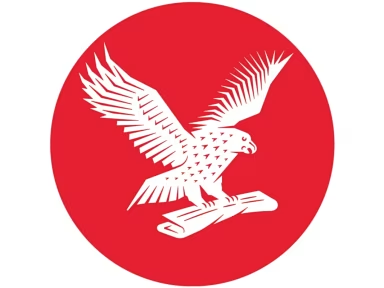Britain’s unemployment rate has risen to its highest level for nearly a year as vacancies continued to fall and yet more people dropped out of the labour market, mostly due to ill health.
The Office for National Statistics (ONS) said the rate of UK unemployment rose to 4.3 per cent in the three months to March - the highest since May to July last year and up from 4.2 per cent in the previous three months.
Job vacancies fell by 26,000 to 898,000 between February and April of this year - a reduction of 2.8 per cent from November 2023 to January 2024.
Liz McKeown, ONS director of economic statistics, said: “We continue to see tentative signs that the jobs market is cooling, with both employment from our household survey and the number of workers on payroll showing falls in the latest periods.
“At the same time the steady decline in the number of job vacancies has continued for a 22nd consecutive month, although numbers remain above pre-pandemic levels.”
The economic inactivity rate also jumped to 22.1 per cent in January to March, up from 21.9 per cent in the final three months of 2023.
TUC General Secretary Paul Nowak said the Tories are presiding over a “rapidly deteriorating jobs market”.
He added: “Unemployment and economic inactivity are shooting up. Over a million people are trapped on zero-hours contracts. And real wages are still worth less than in 2008.
“Forget ‘green shoots’ - everywhere you look the Conservatives are failing working people.
“Our country is crying out for a proper economic plan for jobs and growth to make sure household incomes can recover and everyone is secure at work.
“And our NHS desperately needs investment to get waiting lists back down. When people can access treatment faster, they will return to work sooner.”
The data also showed that wage growth remained unchanged at 6 per cent in the three months to March.
While this helped wages outstrip Consumer Prices Index (CPI) inflation by 2.4 per cent - the highest since the three months to August 2021 - it is unhelpful for the Bank of England in its battle to rein in inflation.
The Bank is watching wages closely as it looks to bring CPI back to its 2 per cent target, and cooling earnings growth is seen as being key to paving the way for it to begin cutting interest rates.
Most economists were expecting earnings growth to fall to 5.9 per cent.
Ms McKeown added: “Earnings growth in cash terms remains high, with the recent falls in the rate now levelling off while, with inflation falling, real pay growth remains at its highest level in well over two years.”
Ashley Webb, UK economist at Capital Economics said: “While the further easing in regular private sector pay in March suggests that wage pressures faded a bit faster than the Bank of England expected, broader measures of wage growth are probably still a bit too strong for the Bank’s liking.
“At the margin, this may make the Bank a bit more uneasy about first cutting interest rates in June.
“The 178,000 fall in employment in the three months to March (consensus & CE -220,000) was a bit smaller than most expected. Even so, the unemployment rate rose from 4.2% to 4.3% (consensus 4.3%, CE 4.2%), which left it in line with the Bank’s forecast.
“And after a brief hiatus in the three months to March, the number of job vacancies resumed their downward trend in the three months to April. Vacancies fell from 913,000 to 898,000. Admittedly, that still leaves job vacancies 10% above the pre-pandemic level, but they remain 31% below the peak in May 2022.”
However Rob Wood, of Pantheon Macroeconomics, said he believed a rate cut in June was still “on track” despite the strong wages growth.
“That said, strong wage growth will likely stop the Monetary Policy Committee cutting bank rates quickly, so we look for them to reduce interest rates at alternate meetings after June - in September and December - and then four times in 2025,” he said.
This article was written by Joe Middleton from The Independent and was legally licensed through the DiveMarketplace by Industry Dive. Please direct all licensing questions to legal@industrydive.com.

